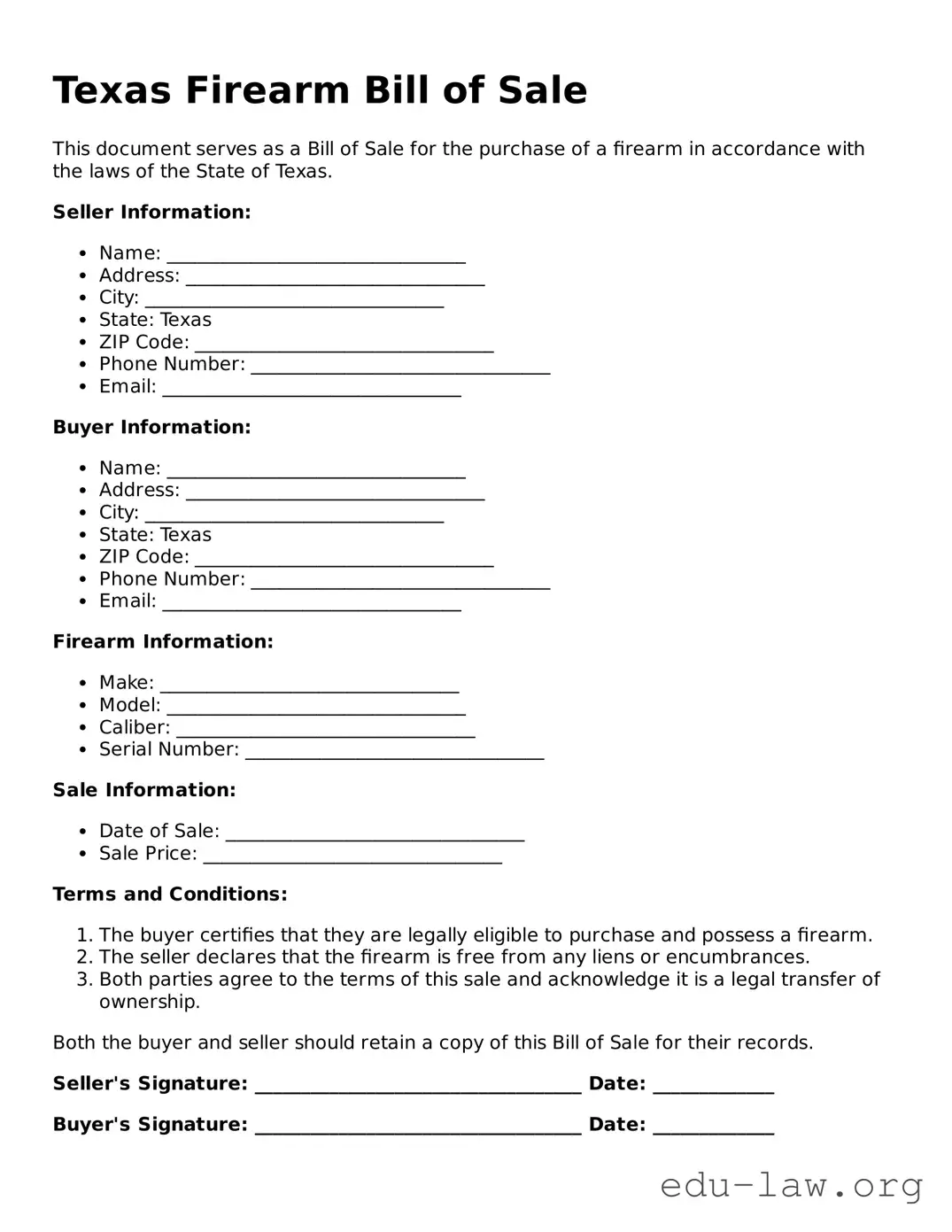What is a Texas Firearm Bill of Sale form?
The Texas Firearm Bill of Sale is a document used to record the sale of a firearm between two parties. This form acts as proof of the transaction, indicating important details such as the make, model, and serial number of the firearm being sold, as well as the buyer's and seller's information. This documentation helps protect both parties in case of future legal issues regarding the firearm.
Is the Texas Firearm Bill of Sale form required by law?
No, the state of Texas does not legally require a bill of sale for private firearm sales; however, it is highly recommended. Having this form in writing provides a level of protection and clarity for both the buyer and the seller. It can serve as evidence of ownership and transaction details, which may be helpful in future discussions or disputes.
What information should be included in the Firearm Bill of Sale?
When completing a Texas Firearm Bill of Sale, important information to include consists of the full names and addresses of both parties, the date of the sale, a description of the firearm (make, model, caliber, and serial number), and the sale price. Additionally, both parties should sign and date the form to make it legally binding.
Do I need to have the Firearm Bill of Sale notarized?
Notarization is not a requirement for a Texas Firearm Bill of Sale. However, getting the document notarized can enhance its credibility and provide additional assurance for both the buyer and the seller. If the form is notarized, it demonstrates a commitment to the transaction and can help to prevent later disputes.
Can I use a Firearm Bill of Sale for any type of firearm?
Yes, the Texas Firearm Bill of Sale can be used for all types of firearms, including handguns, rifles, and shotguns. Regardless of the firearm type, the essential details about the transaction and the firearm itself should always be included in the documentation.
How do I obtain a Texas Firearm Bill of Sale form?
You can easily obtain a Texas Firearm Bill of Sale form online. Numerous templates are available for free or for purchase from various websites. Ensure that the form you choose meets the necessary requirements and covers all pertinent details relevant to your transaction.
What should I do if I lose my Bill of Sale?
If you lose your Bill of Sale, it’s important to take action to have a copy recreated. Contact the seller or buyer to discuss the situation, and if possible, have them sign a new form reflecting the original transaction. Keeping a digital copy or back-up of important documents can help prevent similar circumstances in the future.
Is it necessary to keep the Firearm Bill of Sale once the sale is complete?
Yes, it is advisable for both parties to keep a copy of the Firearm Bill of Sale for their records. Maintaining this document can be vital for proving ownership and history of the firearm, especially in the event of theft or legal issues that might arise later on.
